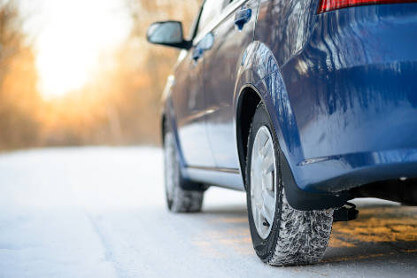
The cold weather can wreak havoc on all sorts of things and your car is no exception. The cold, damp, and ice can get into nooks and crannies leading to locks that won’t unlock, doors that won’t open, screenwash that freezes, and a myriad other problems, large and small. This month we take a look at how to avoid those happening and what to do if you find yourself with a cold-related car problem.
Common problems and solutions
We explore the most common issues likely to occur and offer some solutions to help prevent or overcome them.
- The car will not start. This could either be a battery or a starter motor problem. If the engine makes a faint whining sound, or that nothing at all happens, including no dashboard ignition lights coming on or the remote central locking system is not responding, then you either have a flat battery or loose cables. If the lights and electrics are working but the engine does not turn over, then your problem lies with the starter motor. Keep your battery healthy for longer by making sure everything is switched off before turning the engine off and check it is off before turning the ignition key. Only use heaters or heating and other accessories when you need them so they don’t drain the battery. Park in a garage if you can to avoid the cold depleting the battery. If you make lots of short journeys in cold weather then it may be worth charging your battery regularly as well; replace it if it is older than three years old and isn’t holding its charge for long. Starter motor problems are best left to a trained mechanic.
- You can’t get into your car. This could either be because the locks have frozen, or because the rubber seals on the door have frozen. Try squirting a little WD-40 into the lock or warming up your key to tackle a frozen lock. Avoid the seals freezing by rubbing a little silicone-based furniture polish with a cloth (this will avoid damaging the paintwork which could happen if you try spraying it on to the seal).
- Frozen liquids, including screenwash and radiator water. Make sure that you regularly top up with antifreeze. Frozen water in the radiator can lead to serious problems, while trying to get the screenwash to work while it is frozen could end up with a blown fuse elsewhere.
- The engine keeps cutting out. If a new battery keeps going flat, or your headlights or dashboard lights flicker, then you most likely have a problem with your alternator. This is what charges your battery when the engine is running and if you have problems with it, it will need to be replaced or reconditioned. This is a job best left to a trained mechanic.
- Avoid corrosion from road salt by regularly cleaning your vehicle, even during the winter months.
If you notice any problems with your vehicle, stop and get it checked. For professional help, Bromley Vehicle Test Centres’ trained mechanics can help. All you need to do is give us a call on 020 8460 6666 to make an appointment and we will make sure you are back on the road as quickly as possible.
